Do you really need to shell out more cash for an external mixer if your DJ controller already has one built-in?
With so many features packed into modern all-in-one controllers, it’s not always clear if adding a separate mixer is necessary or just a waste of money.
Let’s break down the key reasons DJs utilize external mixers and when one may or may not make sense for your needs.
Do I Need a Mixer with My DJ Controller?

For most beginners, the built-in mixing capabilities of an all-in-one DJ controller will suffice. As skills progress, however, the limitations become more apparent. Adding an external mixer unlocks more creative possibilities – but also increases cost and complexity. We’ll explore in detail below when one makes sense.
What is a DJ Controller?
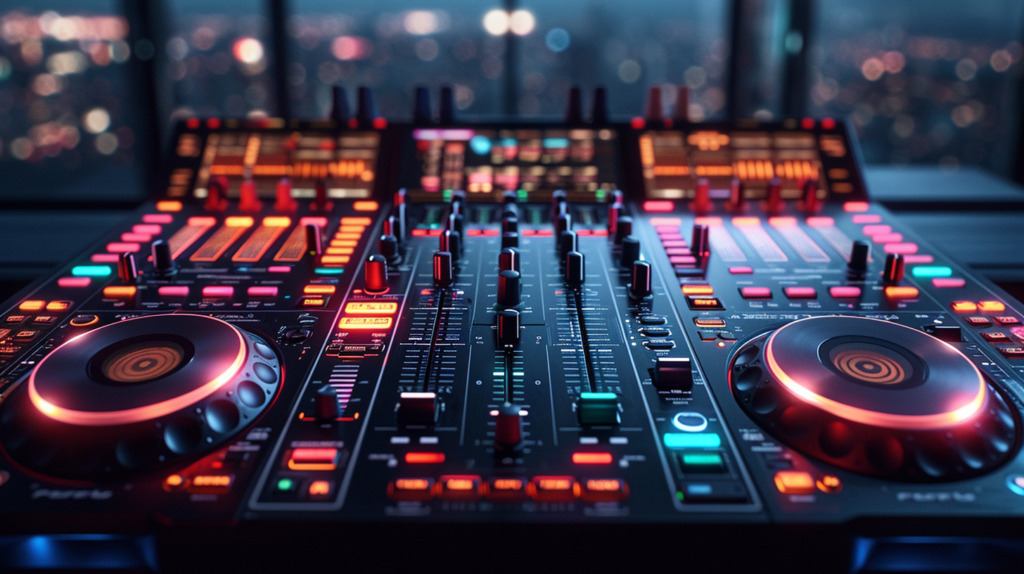
A DJ controller is an electronic device that allows DJs to mix music and apply effects to the music. The controller interfaces with DJ software running on a computer and provides the DJ with jog wheels, performance pads, faders, knobs, and other controls to manipulate the music. Many DJ controllers also contain a built-in audio interface to output the sound from the computer to amplifiers, speakers or headphones. This allows the DJ to mix music files on the computer using the physical controls of the controller, rather than having to use only a mouse and keyboard with the software.
DJ controllers give DJs a tactile, hands-on way to digitally mix tracks rather than having to rely solely on scrolling waveforms on a computer screen. The jog wheels mimic real vinyl turntables and allow “scratching” and pitch adjustments, while the pads, buttons, and faders give direct access to software controls like effects, loops, or EQs. This resurrects some of the physicality of classic vinyl and CD mixing setups while harnessing the flexibility of modern mixing software.
Do You Need an External Mixer?
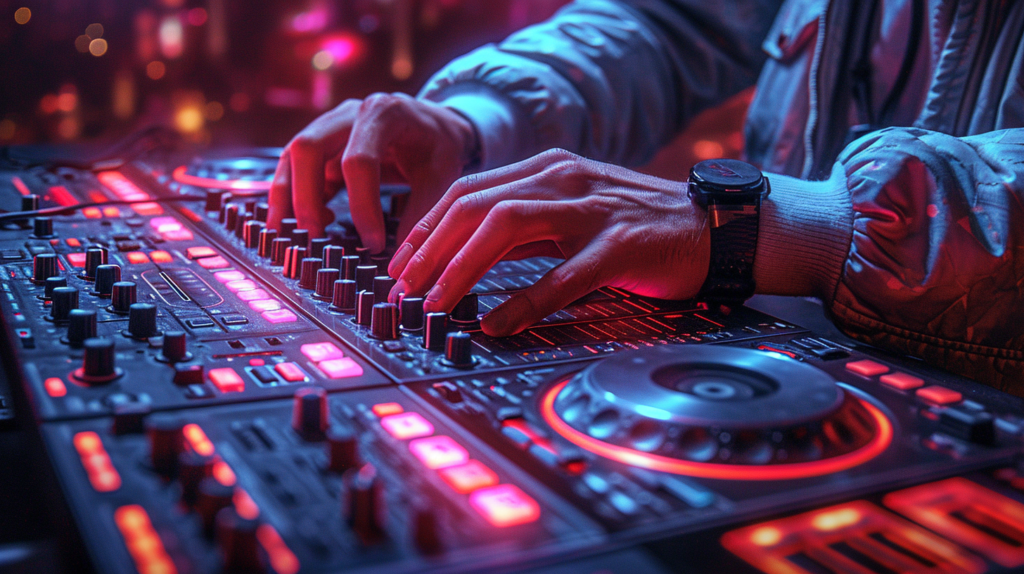
While DJ controllers provide great mixing capabilities right out of the box, they do have some limitations compared to full professional club or festival setups. The built-in audio interfaces and mixers on DJ controllers usually only provide two channels or “decks” to mix between, less flexible routing options between various audio sources, and lack the kinds of customizable controls and sound quality a pro might demand.
Adding an external hardware DJ mixer greatly expands the possibilities of what can be done during a DJ set. External mixers add more channels for mixing across more decks, allow flexible signal routing between turntables, CDJs and digital controllers, provide higher quality audio components like pre-amps and EQs, and enable advanced mixing techniques that utilize three or more channels at once.
However, for many bedroom, mobile or small venue DJs, the built-in mixing capabilities of a controller may be more than enough, especially at the start. The decision between adding an external mixer or not depends on your current and future needs.
Reasons to Use an External Mixer
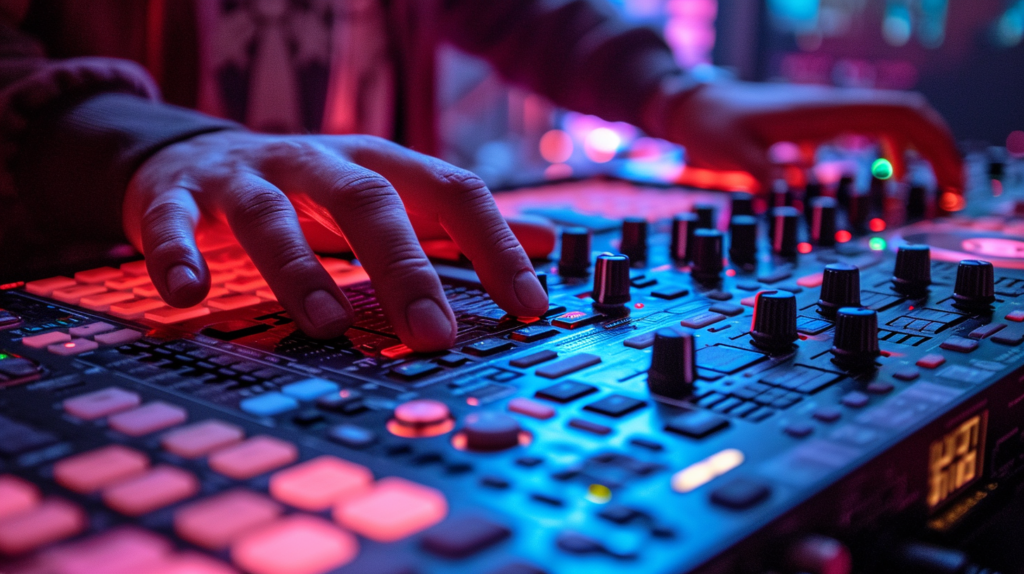
There are several key reasons why intermediate to professional DJs utilize additional audio mixers with their main DJ controllers:
Expand Beyond 2 Channel Mixing
Most DJ software and controllers are designed for mixing between two tracks or “decks” at once, such as smoothly transitioning from one song into another song. Adding an external hardware mixer expands the number channels you can mix at once, allowing more advanced techniques like blending or transitioning between three or even four tracks simultaneously.
Route Audio Between Other Gear
A hardware mixer gives greater flexibility in signal routing audio between the controller, turntables, CDJs, synthesizers or other gear. You can route some devices directly into software channels and other gear into the external mixer. Complex audio setups require managing signals across more inputs and outputs.
Get Higher Quality Audio Components
The digital audio converters, pre-amplifiers and EQs built into consumer controllers can be of lesser audio quality compared to pro DJ mixers. External mixers offer replaceable components, higher voltage circuits and customize controls. This reduces noise, distortion and achieves a clearer, “punchier” sound.
Unlock Advanced DJ Techniques
Having at least 3+ channels to mix on unlocks more advanced turntablism and creative mixing possibilities. DJs can blend together smoother, longer transitions, route signals to effect chains or headphones cues, or develop extreme scratch and juggle routines that utilize 3 or 4 decks of vinyl. An external mixer makes these kinds of techniques possible.
Reasons You May Not Need a Mixer
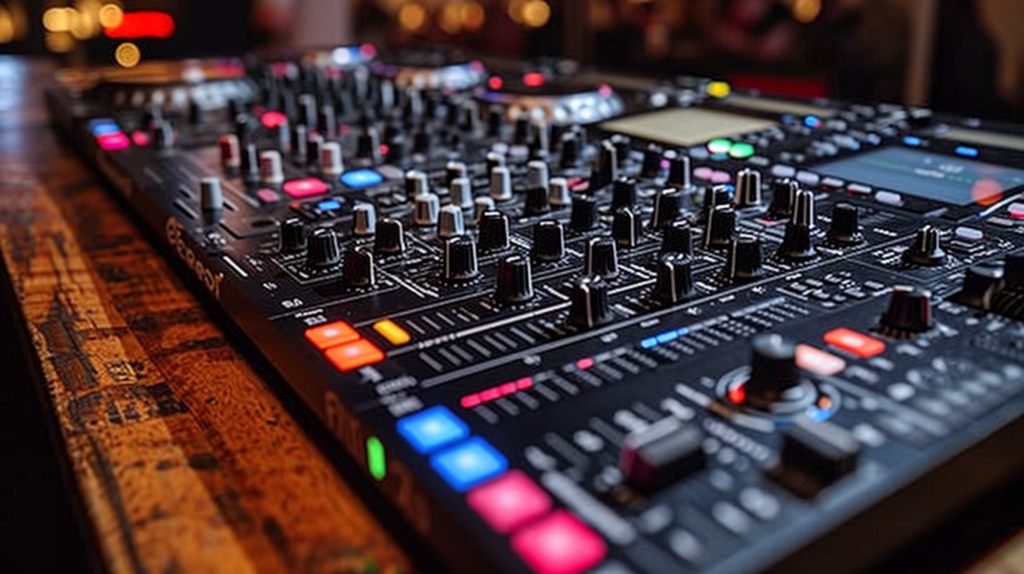
While external audio mixers provide excellent expanded functionality for controller DJs, they also come with downsides that for some setups and scenarios may not be necessary:
Mixing Only 2 Channels
If you are primarily mixing and beatmatching between just two tracks or decks at once (such as between digital files, or between digital files and vinyl turntables), then a 2 channel controller most likely already has you covered. No need for more channels to mix across.
Using Controller Primarily for Software Effects
If you plan to utilize your DJ controller more for software functions like adding effects, loops or cues points on the fly, rather than doing extensive external routing or input mixing, then leaning more heavily on controller functionality could be enough.
Want Cheaper, More Portable Setup
Adding more gear means additional costs and more equipment to transport and setup. If budget or mobility are major constraints, minimizing external devices helps keep costs down and setup simple.
Don’t Require Additional Functionality
For casual DJs or those still learning the craft, the extra capabilities of external mixers could be overkill. The basics can still be well-covered by the built-in mixer and controls of an all-in-one controller.
Other Options
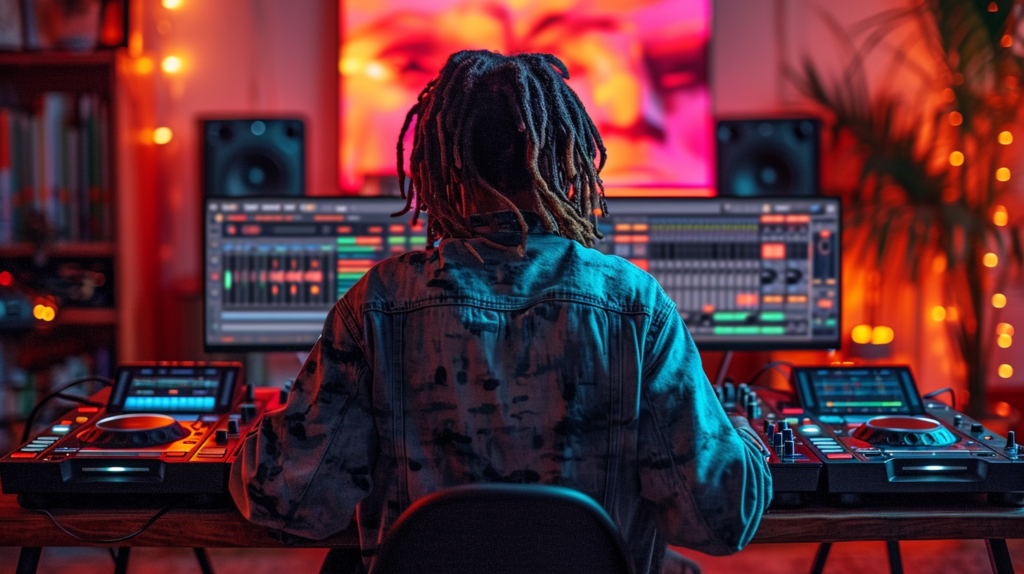
External DJ mixers are not the only way to build upon the limitations of DJ controllers. Some other options include:
Audio Interfaces
For improving general sound quality, adding a multi-channel external audio interface can provide cleaner headphone cue monitoring and higher quality digital-to-analog conversion of signals.
Standalone Preamps
Small external pre-amps offer DJ-specific equalization controls and manipulate incoming audio signals before reaching the controller or software, helping to achieve a crisp, vibrant sound.
Specialty Video Mixers
For DJs looking to mix and blend visual media like music videos across multiple screens and outputs, specialty AV mixers route and manage those signals in combination with audio.
The choice between adding more gear like external mixers to a DJ controller setup is one with lots of pros and cons to weigh. Critical factors include current versus future needs and uses, budget constraints, types of events being played, and level of demand for audio quality or advanced mixing functionality. The needs of a beginner mobile DJ can differ vastly from a club installation DJ, for example. Identifying core requirements now and possible growth areas down the road helps determine if external mixers or other gear should be part of your roster.
Conclusion
While DJ controllers provide excellent built-in mixing capabilities, adding an external hardware mixer opens up more creative possibilities. But it also increases cost and complexity. Consider both current needs and future goals when deciding if an external mixer belongs in your setup. Oftentimes, the controller alone will be sufficient for hobbyists and beginners. As skills progress, the limitations of an all-in-one controller may become more apparent. At that point, incorporating additional audio gear unlocks the full potential of DJing in the digital age.
